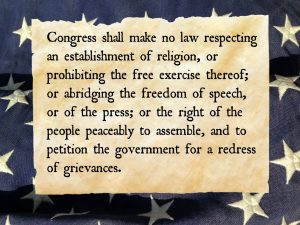- Know Your Rights: It’s important to understand that you have the right to record police officers performing their duties in public spaces. This right is protected under the First Amendment of the U.S. Constitution.
- Maintain a Safe and Respectful Distance: While recording, keep a reasonable distance from any police activity to ensure you do not interfere with law enforcement operations. The ACLU suggests staying calm and not getting in the way of the police.
- Do Not Secretly Record: In many jurisdictions, the laws concerning audio recording require consent from all parties involved. It’s safer to record openly rather than attempting to do so in secret.
- Know the Local Laws: Be aware of any specific state or local laws that might regulate recording. Some areas may have specific requirements or restrictions.
- Use Judgement: If a police officer asks you to stop recording or to move, use your judgment. Asserting your rights is important, but so is assessing the situation for potential risk. If you feel your rights are being violated, comply under protest and remember the details for a future legal challenge.
- Preserve the Recording: Keep a secure copy of your recording. If you believe the recording has evidence of police misconduct, consider making copies and backing them up in secure locations.
- Share Responsibly: Consider the implications if you intend to share the recording publicly or with the media. Blurring the faces of bystanders or others who have not consented to be filmed can protect privacy.
- Use ACLU Apps: The ACLU has developed specific mobile apps in some states designed to securely record and submit videos of police interactions to the ACLU. These apps can automatically upload videos to ACLU servers, preserving them even if your phone is confiscated or destroyed.
- Stay Informed: Laws and policies can change, so it’s essential to stay informed about the latest developments regarding your rights to record police activities.
To get more information on the federal cases listed above, go to the following websites:
Free Access Websites

- Google Scholar (scholar.google.com)
- Offers a broad range of legal documents, including federal and state case law. It’s a good starting point for free legal research.
- Cornell Legal Information Institute (LII) (www.law.cornell.edu)
- Provides free access to a wide range of legal resources, including U.S. Supreme Court decisions, federal statutes, and regulations.
- FindLaw (findlaw.com)
- Offers free case law search, which includes Supreme Court opinions and cases from various courts of appeals and state supreme courts.
- Justia (www.justia.com)
- Provides free access to federal and state court decisions, statutes, and regulations, as well as legal information and resources for the public.
- Public Library of Law (plol.org)
- One of the largest free law libraries in the world, providing access to court cases, statutes, regulations, and legal articles.


 The right to record police in performing their duties in public spaces is a critical issue that intersects with First Amendment rights to free speech and press.
The right to record police in performing their duties in public spaces is a critical issue that intersects with First Amendment rights to free speech and press.  According to the American Civil Liberties Union (ACLU), citizens should responsibly and legally use cameras to record police activities.
According to the American Civil Liberties Union (ACLU), citizens should responsibly and legally use cameras to record police activities.